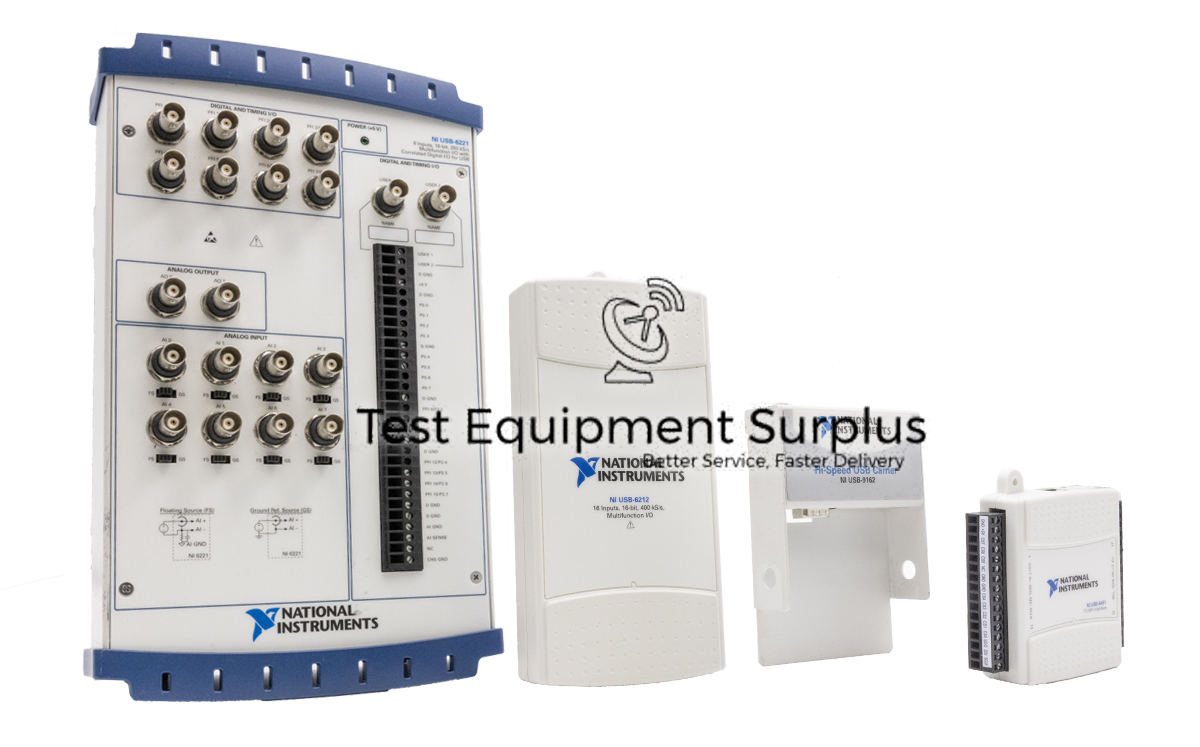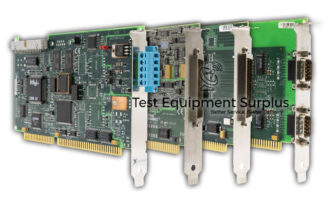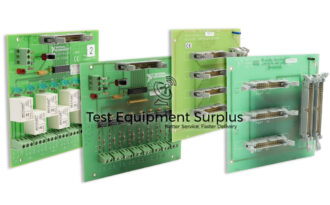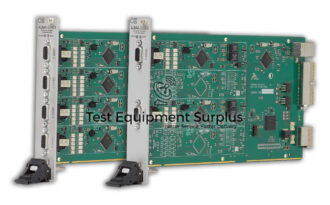Description
The National Instruments USB-8501 CAN Interface Device, with part numbers 786306-01 and 786307-01, is a versatile low-speed/fault tolerant Controller Area Network (CAN) interface device that ensures compatibility with NI-XNET drivers. Available in both one port and two ports variations, this bus-powered device connects via a USB 2.0 port and is designed for a range of applications including automation, bus monitoring, and control.
Its sophisticated DMA engine is engineered to minimize CPU load and reduce message latency, making it ideal for handling complex tasks with ease. The included COMBICON connector enables synchronization with external devices and external triggering, enhancing the device’s flexibility. Equipped with an NXP TJA1055T transceiver, it is capable of operating at a maximum baud rate of 125 Kbps and offers a 5V TTL compatible synch port.
Furthermore, the NI USB-8501 CAN Interface Device comes with a 2-meter long captive USB cable, ensuring sufficient reach and connectivity for various setups.
| Feature | Description |
|---|---|
| Product Name | National Instruments USB-8501 CAN Interface Device |
| Part Numbers | 786306-01, 786307-01 |
| Type | Low-Speed/Fault Tolerant Controller Area Network (CAN) Interface Device |
| Compatibility | NI-XNET drivers |
| Variations | One port and Two ports |
| Power | Bus-powered, USB 2.0 port |
| Applications | Automation, Bus Monitoring, Control, and more |
| DMA Engine | Minimizes CPU load, reduces message latency |
| COMBICON Connector | For synchronization and external triggering |
| Transceiver | NXP TJA1055T |
| Maximum Baud Rate | 125 Kbps |
| Synch Port Compatibility | 5V TTL |
| USB Cable Length | 2 meters, captive |
Question 1: What are the part numbers for the National Instruments USB-8501 CAN Interface Device, and what are its key features that make it suitable for automation, bus monitoring, and control applications?
Answer 1: The DMA (Direct Memory Access) engine in the National Instruments USB-8501 CAN Interface Device functions to offload data transfer tasks from the CPU, thereby minimizing CPU load and significantly reducing message latency, which allows for efficient handling of complex tasks without bogging down the processor.
Question 2: What are the main features and applications of the National Instruments USB-8501 CAN Interface Device?
Answer 2: The National Instruments USB-8501 CAN Interface Device is equipped with a DMA engine for reduced CPU load and lower message latency, a COMBICON connector for synchronization and external triggering, an NXP TJA1055T transceiver with a maximum baud rate of 125 Kbps, and a 5V TTL compatible synch port, designed for applications such as automation, bus monitoring, and control, and comes with a 2-meter long USB cable for convenient connectivity.
Question 3: What is the maximum baud rate at which the National Instruments USB-8501 CAN Interface Device with NXP TJA1055T transceiver can operate, and what are the specific applications for which it is designed?
Answer 3: The part numbers for the National Instruments USB-8501 CAN Interface Device are 786306-01 and 786307-01, and its key features that make it suitable for automation, bus monitoring, and control applications include compatibility with NI-XNET drivers, options for one or two ports, a sophisticated DMA engine for reduced CPU load and message latency, a COMBICON connector for synchronization with external devices, an NXP TJA1055T transceiver capable of a maximum baud rate of
Question 4: What applications are suitable for the National Instruments USB-8501 CAN Interface Device, and how does it maintain efficiency and flexibility for these tasks?
Answer 4: The National Instruments USB-8501 CAN Interface Device is suitable for applications in automation, bus monitoring, and control, where it maintains efficiency through its sophisticated DMA engine that minimizes CPU load and reduces message latency, and it offers flexibility by including a COMBICON connector for synchronization with external devices and external triggering.
Question 5: What is the function of the DMA engine in the National Instruments USB-8501 CAN Interface Device, and how does it benefit CPU performance and message latency?
Answer 5: The National Instruments USB-8501 CAN Interface Device with NXP TJA1055T transceiver can operate at a maximum baud rate of 125 Kbps, and it is specifically designed for applications such as automation, bus monitoring, and control.




